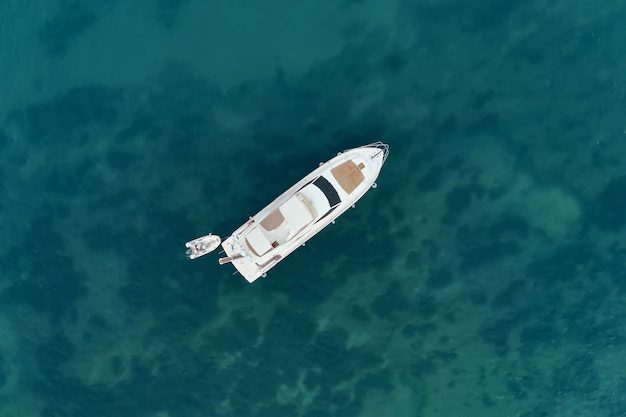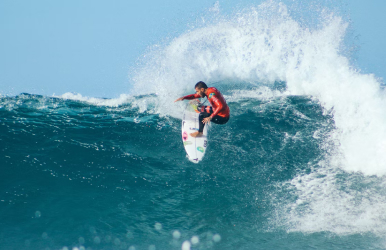Speed Boat Miami Tour – Sightseeing and Entertainment
BY Abdul Aziz May 30, 2022
Do you want to explore the Miami coastline on a thrilling speedboat tour? Then, zooming along the water in a powerful catamaran will become a memorable adventure. Speed boat Miami tour is a sightseeing cruise past amazing landscapes, Fishing Island, mansions, celebrity houses, and other sights. So unusual and breathtaking travel ensures fascinating experiences and an adrenaline rush. Of course, you'll also be happy to speed down the sandy coast of South Beach and savor the local sun, surfing on this high-speed trip. However, you should find the best company to provide all bells and whistles of speed boating in Miami. For this purpose, Jetboat Miami is one of the best options. Jetboat Miami: What Is on Display? Once you enter the company's official website, you'll dive into various offers promising the most exciting speed boat tours in Miami. Exciting activities include the following rides: Jetboat tours to taste the thrill of a lifetime. Mind-blowing parties on catamarans. Jet skiing Miami rides for highly energetic adrenaline-seekers. Pontoon boat rentals Miami for fishing, family trips, and quality time with friends. Yacht and speedboat tours Miami to enjoy fascinating excursions. Yacht rental for private charters. All sorts of adventures are at your disposal. In fact, you can choose to hire watercraft with the crew or operate Miami speed boats independently. A wide range of activities provides inflexible services for people of all tastes. Water Miami Tours for Extreme and Sightseeing Have you ever felt the wind in your hair? Have you dreamed about spotting sea animals and tropical nature along the way? Do you care about your health? If yes, water activity is a win-win solution. Whether you choose calm pontoons or breathtaking jet skis and speed boats Miami, you'll have too much of a good thing. People worldwide apply to JetBoatMiami to appreciate local natural beauty, seek adventures, and have quality time with close people. The operator's services are exhilarating and unforgettable ways of enjoying vacations, honeymoons, birthday parties, and corporative events. You will find a trip for couples, small and big companies of friends and colleges. The company features high-level customization, providing a diversity of experiences based on clients' desires and needs. Of course, most people look for rest and entertainment when booking speedboat Miami trips. However, the operator also has offers for those striving to enhance physical or mental health, add romantics to relationships, or bring more joy to their kids. Related: Factors To Consider When Hiring A Boat In Sydney How Can You Book a Tour on Jetboatmiami.com? You will easily find all speed boat tours in Miami on the company's official website. The online platform is a fast and convenient way to explore offers and choose the best to make your dreams come true. The site is very informative. It discloses specifics and pricing for every speed boat tour in Miami, facilitating the search for different audiences. So whether you are parents with small kids or Miami speedboat fans, you'll find the most appropriate options with a few clicks. It should be said that the site is perfectly optimized for mobile devices. So, you can make bookings and read news on the go from anywhere you want. Once you find what you're looking for, use an online calendar and a convenient form to order an exciting and affordable Miami speed boat tour. The company is notable for some interesting services. For example, in a special section, you will find photos and videos taken by professionals during previous pontoon, jet ski, yacht, and speed boat Miami tours. You may filter your search by time or alphabetically. The platform is also easy to book services for novices. It clarifies requirements like allowed age, maximum weight per person, rules for pregnant women, etc. In addition, it highlights other aspects and peculiarities of extreme water activities. Those seeking more detailed information may read a blog or FAQs on the site. Why Should You Choose JetBoatMiami for Rides and Cruises? The JetBoatMiami tour operator ensures unique and highly personalized experiences for all guests coming to us in search of adrenaline and adventures. At the same time, many other companies can make travelers closer to local sights and attractions. A speed boat tour of Miami is a popular service. Why JetBoatMiami? Let's see! The operator owns top-of-the-line, brand new, and super-fast personal watercraft. It offers guided private, group, and individual journeys on various vessels. One-hour and longer tours cover various localities (Star Island, Biscayne Bay, Downtown Miami Area, etc.) You can make adjustments and include parties, diving, fishing, snorkeling, and more water entertainment in your Miami speed boat and other tours. Although the operator has strict rules and regulations to follow the law and protect customers, their policies are flexible enough to find the middle ground and provide unforgettable impressions. Besides, you will appreciate JetBoatMiami's loyal cancellation policy. For instance, clients can make up to three rebooks and reschedule the tour up to 24 hours before the start. If some misunderstandings occur, the staff does its best to address any issue on short notice and reach out to a mutually beneficial agreement. Many reviews on third-party websites prove the company's client-oriented focus and quality services. Related Resource: Top 10 Best Beaches In Florida 10 Best Places To Travel In August – Travel Guide 2022 10 Best Places To Travel In December – Travel Guide 2022 10 Best Fishing Charters In Florida To Visit In 2022 – Tour And Travel Guide














